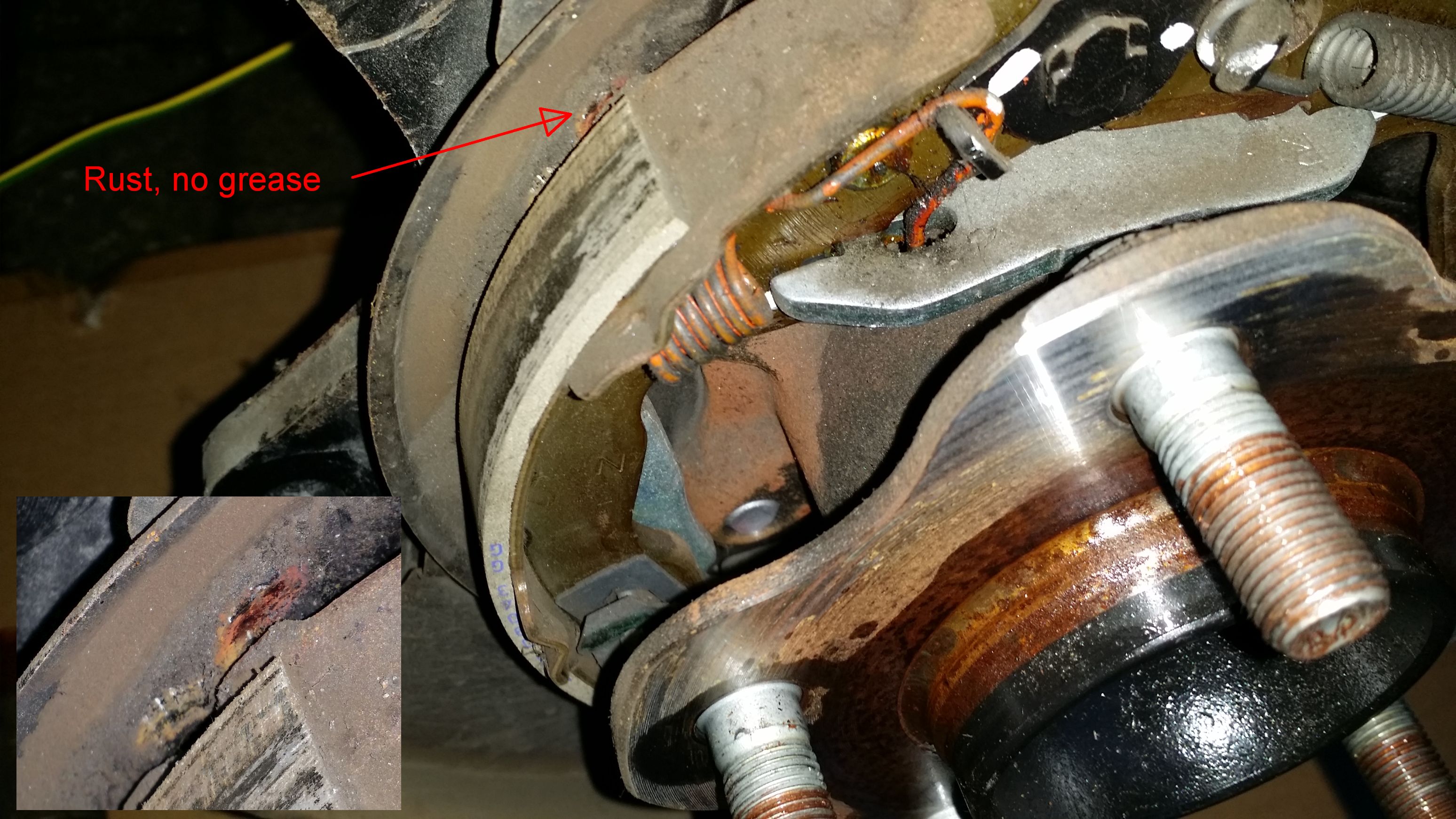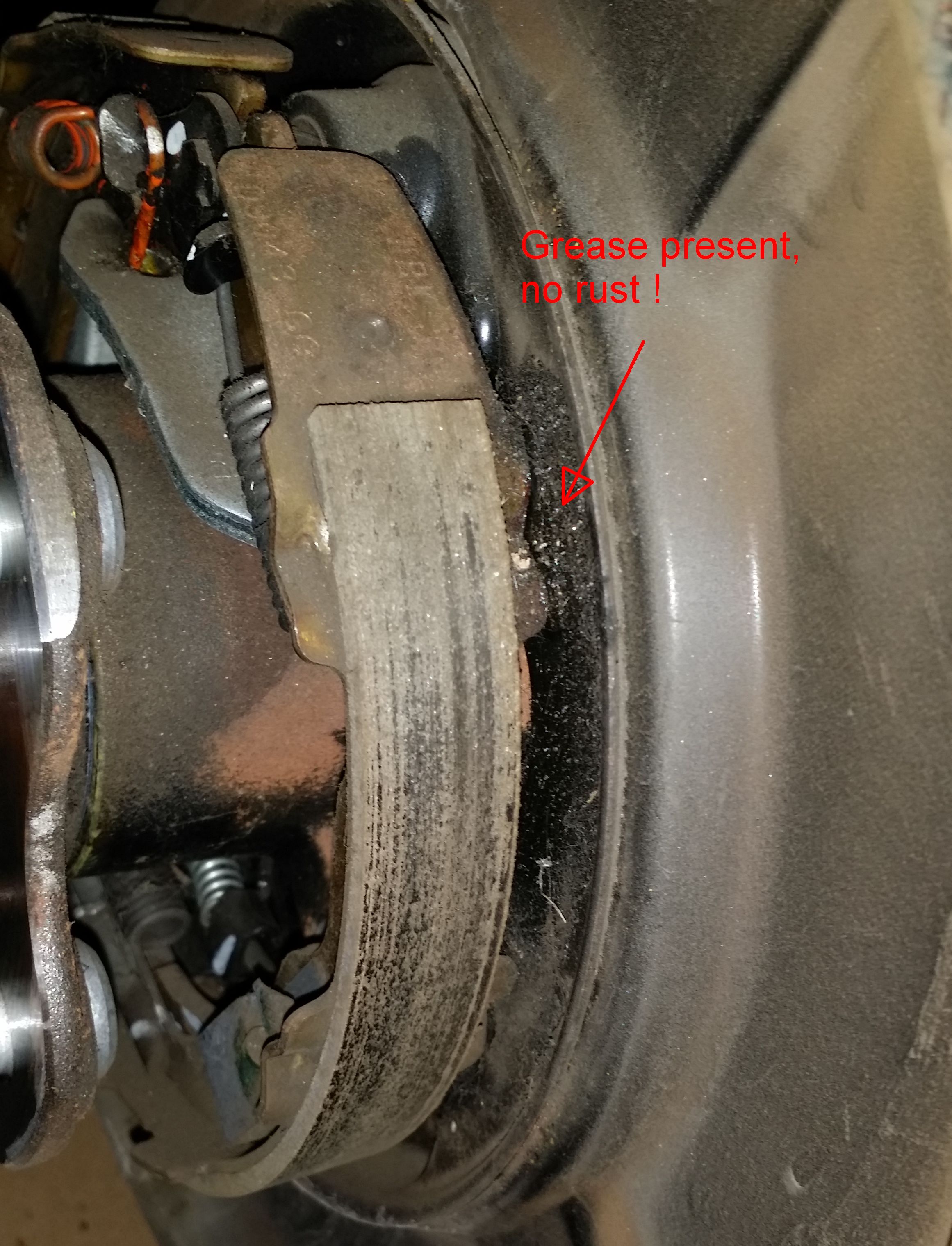gncndad
Well-known member
LeftieBiker said:Nope. Very common mistake, though.
Can't you change it??? :roll: :lol:
I'm loosing my patients over it, irregardless how hard it is for you the change it. Is it there mistake, or yours?

LeftieBiker said:Nope. Very common mistake, though.
motco said:Nubo said:motco said:Following advice from another Leaf owner I drove along our road for about a quarter of a mile with the parking brake partly applied. Next time I parked I used the parking brake and when I reversed... blessed silence!
Time will tell how long this remedy works for and I shall report accordingly.
This is interesting. But in my case I can modulate the squeaking with brake pedal pressure so I'm not sure how that would translate to parking-brake pad squeal. Sounds worth a try though; I can't imagine destroying the linings with a bit of mild braking.
Nubo, I suspect we are barking up different trees! The (service) brakes do 'grunt' a bit when almost stopped and that also seems to be a feature of the Leaf. We're referring to a nasty squealing noise and resistance to progress in reverse after parking with the foot-operated parking brake. The pedal is released, reverse selected, and the car is reluctant to move without accelerator pressure (when it usually creeps like a normal torque converter auto), and yet after a normal journey reversing is back to normal as long as the parking brake remains unused.
Nubo said:motco said:Nubo said:This is interesting. But in my case I can modulate the squeaking with brake pedal pressure so I'm not sure how that would translate to parking-brake pad squeal. Sounds worth a try though; I can't imagine destroying the linings with a bit of mild braking.
Nubo, I suspect we are barking up different trees! The (service) brakes do 'grunt' a bit when almost stopped and that also seems to be a feature of the Leaf. We're referring to a nasty squealing noise and resistance to progress in reverse after parking with the foot-operated parking brake. The pedal is released, reverse selected, and the car is reluctant to move without accelerator pressure (when it usually creeps like a normal torque converter auto), and yet after a normal journey reversing is back to normal as long as the parking brake remains unused.
I suspect you're right; there are 2 different squeaks being discussed in this thread. It's been some time since I bedded my brake pads so I need to try that first; it's just such a minor thing I haven't gotten around to it. Slightly embarrassing though when you squeak coming out of the garage. If the bedding doesn't help I'll probably try burnishing the parking brakes as mentioned, just out of curiosity.
motco said:Nubo, forgive me for wandering off-topic, but I'm intrigued by your footnote regarding polymers. For much of my working life I worked in industry in manufacturing, and I qualified many years ago as a polymer technologist - mainly in the engineering part rather than the chemistry of polymers. I also have an old friend who ran the Polymers Center for Excellence in Charlotte, N Carolina. Are you a polymers scientist? Or did I miss a subtle joke looking from here in UK?
Or did the Sunderland factory that made my car (in January 2015) use less durable silicone-based grease ?
Nubo said:motco said:Nubo, forgive me for wandering off-topic, but I'm intrigued by your footnote regarding polymers. For much of my working life I worked in industry in manufacturing, and I qualified many years ago as a polymer technologist - mainly in the engineering part rather than the chemistry of polymers. I also have an old friend who ran the Polymers Center for Excellence in Charlotte, N Carolina. Are you a polymers scientist? Or did I miss a subtle joke looking from here in UK?
It's a line from the movie Star Trek IV
[youtube]https://www.youtube.com/watch?v=LkqiDu1BQXY[/youtube]
gncndad said:LeftieBiker said:Nope. Very common mistake, though.
Can't you change it??? :roll: :lol:
I'm loosing my patients over it, irregardless how hard it is for you the change it. Is it there mistake, or yours?
powersurge said:I don 't think that it is worth it to be doing all this just to stop a little squeak in reverse.
Afterall, you are getting a free reverse alarm.
It is normal for the brakes to have a light squeak in reverse.


Break-in Procedure INFOID:0000000010122367
1. Perform parking brake break-in (drag run) operation by driving vehicle under the following conditions:
• Drive the vehicle forward.
• Maintain vehicle speed at approximately 40 km/h (25 MPH) keeping it constant in forward direction.
• Apply the parking brake at the constant operating force specified. Approximately 200+49.0 Nm (20.4+5
kg-f, 45+11 lb-f).
• Release the parking brake after approximately 5+5/-0 seconds.
CAUTION:
To prevent lining from getting too hot, allow a cool off period of approximately 5 minutes after
every break-in operation.
gncndad said:motco, orbiter 2006:
It would be helpful if you'd put your location in your signature. Your experience with rust indicates you're in a humid/cool environment, probably with salted winter roads?
motco said:gncndad said:motco, orbiter 2006:
It would be helpful if you'd put your location in your signature. Your experience with rust indicates you're in a humid/cool environment, probably with salted winter roads?
Fair comments gncndad, location added. It is a cool and humid climate, especially in winter. Salt is used on the roads in sub-zero weather but we've had a mild winter thus far this year so not a lot of that. Lately it's been wet, VERY wet!
Enter your email address to join: